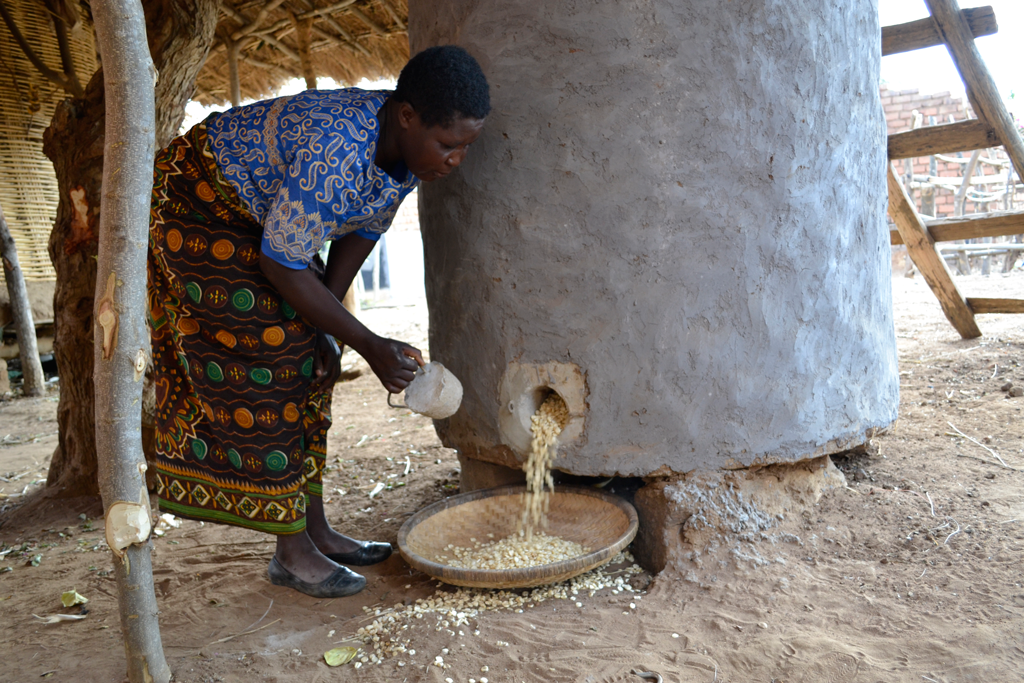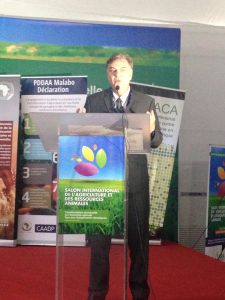
On 18 November, Daniel Balaban delivered a keynote speech at the 8th African Day for Food and Nutrition Security, celebrated in Côte d’Ivoire. The theme of this year’s commemoration was “Promoting Sustainable Food Systems for Healthy Diets and Improved Nutrition”. An audience of 180 representatives of 25 countries, including several ministers of Agriculture, attended the event to share experiences and discuss challenges in ensuring food security and nutrition for all.
The main purpose of the Africa Day for Food and Nutrition Security (ADFNS) is to serve as a rallying point in intensifying political and financial commitments at all levels to address current challenges of food and nutrition insecurity in Africa. The ADFNS provides a platform at national, regional and continental levels to share experiences, knowledge and mutual learning, as well as to measure progress in assuring food and nutrition security for all by governments and multi-stakeholder partners.

In his keynote speech, the director of the WFP Centre of Excellence against Hunger, Daniel Balaban, recognized the key role WFP plays in Africa as part of its mandate of promoting food and nutrition security and highlighted the importance of the commitment of governments with this objective.
“We are aware that fulfilling our ambitions by 2030 will require not just WFP but the whole world to make nutritious food accessible and available all year to eliminate stunting, to increase rural economic opportunity, to prevent food waste, and to promote sustainable agricultural development. We all are more pressed than ever to meet these challenges quickly and to achieve the Sustainable Development Goal of Zero Hunger”, he said.
African challenges
The need for investment in nutrition has never been so clear. WFP has been working globally and more specifically with the African Union and several African countries to assess the impact of malnutrition through the Cost of Hunger in Africa Study. The study translates the burden of undernutrition into figures: 44 percent of all child mortality in Africa is associated with undernutrition, and only 1 in 5 children suffering from undernutrition receive adequate medical care.
This reflects on children’s development and their capacity to learn. The study reveals that up to 18 percent of repetitions in schools are associated with stunting, and stunted children can have up to 3.6 years less in school education. “Workforces are impacted by these trends, and all these factors result in human and economic losses for countries. Here is a striking fact: the annual costs associated with child undernutrition can go up to 16.5 percent of a country’s GDP,” stressed Balaban.
In recognition of the unacceptable and chronic crisis of hunger and malnutrition in Africa, the African Union Heads of State and Government declared the Africa Day for Food and Nutrition Security at the 15th Ordinary Session of the AU Summit in Kampala, Uganda, in July 2010. Since the inaugural commemoration in Lilongwe, Malawi, on 31 October 2010, the ADFNS has been successfully commemorated seven times. Besides the WFP Centre of Excellence, WFP was represented at the event by the Regional Bureau Dakar, Headquarters, and WFP ADD.




